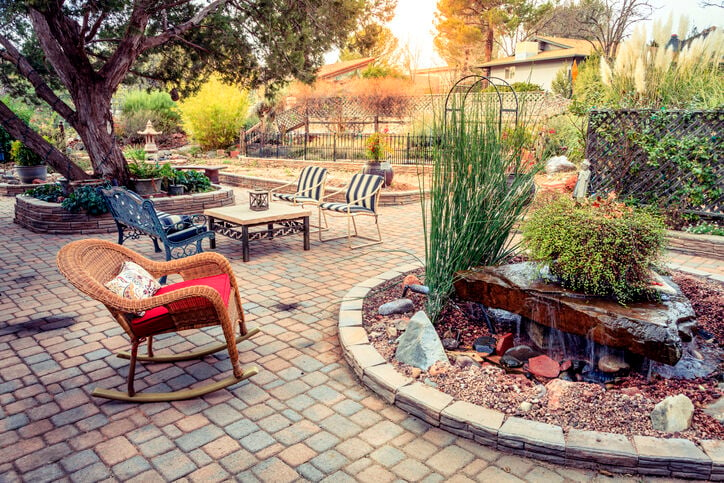You don’t have to be a gardener to notice that plants make you feel better. Whether it’s forest bathing in a natural setting, a room filled with green, lush indoor plants, or your own garden, we have always had a strong and positive connection to plants of all shapes and sizes. Scientists over the past few decades have taken note, and have uncovered a lot of evidence that plants can improve our health.
Take, for instance, trees in an urban landscape. A number of studies have shown that increased urban green space is correlated with reduced cardiovascular disease. This may be due to many factors, and needs further study. It’s thought that some of the benefits may be from plants absorbing and reducing pollutants in urban areas, as well as the likelihood that green spaces allow people to be more physically active.
Pollution itself is a major cause of deaths worldwide, with the World Health Organization estimating that over 4 million people die worldwide each year due to air pollution. Trees may be particularly helpful in reducing pollution when planted near streets, although this idea needs further study. In our area, trees also have the obvious benefit of providing shade, which leads to cooler temperatures in our city. This has the potential of reducing heat-related illness and deaths considerably, according to this analysis which suggests that increasing tree cover in urban areas in the U.S. could save up to 1,200 lives per year.
Indoor plants have also been linked to better health. Studies have found that indoor plants reduce stress and anxiety, and seem to help lower indoor concentrations of volatile organic compounds (VOCs) which can be harmful to human health (although this last finding needs more evidence). Some studies have found that plants can reduce recovery time from surgery in hospital settings and there is a fair amount of evidence to suggest that hospitals and other health facilities would benefit their patients if they included green spaces in their designs.
Plants also produce their own VOCs, some of which are thought to be helpful in stimulating our immune systems to fight diseases. The effects of indoor plants on health is an important area of study, because we spend around 90% of our time indoors, where, according to the EPA, pollutant concentrations can be two to five times higher than outside.
If you’re lucky enough to have your own garden, you can also experience these benefits. Studies have shown that gardening has been linked to reduced stress, increased social connections, and even reduced risk of dementia. Some stress-reducing features that you can include in your garden design include water features, plants that move in the wind, flowering plants, plants that encourage local wildlife, and (of course) shade-providing trees. If you don’t have your own space, consider volunteering with local plant-centric organizations or renting a plot from Community Gardens of Tucson. Your body and mind will thank you.





